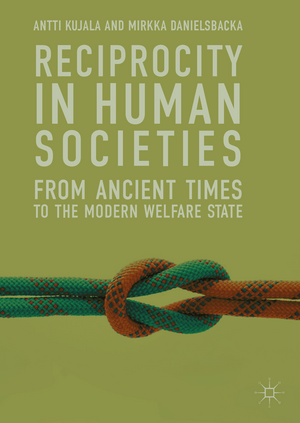Reciprocity in Human Societies: From Ancient Times to the Modern Welfare State
Autor Antti Kujala, Mirkka Danielsbackaen Limba Engleză Hardback – 16 aug 2018
| Toate formatele și edițiile | Preț | Express |
|---|---|---|
| Paperback (1) | 178.08 lei 6-8 săpt. | |
| Springer International Publishing – 27 dec 2018 | 178.08 lei 6-8 săpt. | |
| Hardback (1) | 488.33 lei 6-8 săpt. | |
| Springer International Publishing – 16 aug 2018 | 488.33 lei 6-8 săpt. |
Preț: 488.33 lei
Nou
Puncte Express: 732
Preț estimativ în valută:
93.44€ • 101.82$ • 78.74£
93.44€ • 101.82$ • 78.74£
Carte tipărită la comandă
Livrare economică 23 aprilie-07 mai
Preluare comenzi: 021 569.72.76
Specificații
ISBN-13: 9783319960555
ISBN-10: 3319960555
Pagini: 143
Ilustrații: IX, 225 p. 2 illus.
Dimensiuni: 148 x 210 mm
Greutate: 0.43 kg
Ediția:1st ed. 2019
Editura: Springer International Publishing
Colecția Palgrave Macmillan
Locul publicării:Cham, Switzerland
ISBN-10: 3319960555
Pagini: 143
Ilustrații: IX, 225 p. 2 illus.
Dimensiuni: 148 x 210 mm
Greutate: 0.43 kg
Ediția:1st ed. 2019
Editura: Springer International Publishing
Colecția Palgrave Macmillan
Locul publicării:Cham, Switzerland
Cuprins
1. Introduction.- 2. Inca and Maya Reciprocity.- 3. The Indian Gift and Village Servants.- 4. Moral Obligations in Early Modern Japan.- 5. Gift Exchange and Reciprocity in the Nordic Countries.- 6. Reciprocity in the French Army in the First World War and in the Finnish Army in 1941-44.- 7. The Modern Welfare State.- 8. Inequality in the United States and Other Industrialized Countries.- 9. Reciprocity Past and Present.
Recenzii
“The book has many merits, and it can be warmly recommended to all researchers, teachers and students in wide fields of related research. Kujala and Danielsbacka clearly provide new insights into reciprocity by … shedding light on the questions of why and how reciprocity has played an important role in premodern and contemporary societies and will continue to do so in the future.” (Hans Hämäläinen, Finnish Yearbook of Population Research, Vol. 53, 2018)
Notă biografică
Antti Kujala is PhD and Docent (Senior Lecturer) in Finnish and Russian history at the University of Helsinki, Finland. He has published many works on Finnish, Nordic and Russian history from the 17th to 20th century.
Mirkka Danielsbacka is Senior Researcher in the Department of Social Research at the University of Turku, Finland. She holds a PhD in Finnish and Nordic history and social and public policy at the University of Helsinki. Her research focuses on Second World War, welfare state and family relations.
Textul de pe ultima copertă
Presenting new insights into reciprocity, this book combines Marcel Mauss’s well-known gift theory with Barrington Moore’s idea of mutual obligations linking rulers and the ruled. Teasing out the interrelatedness of these approaches, Reciprocity in Human Societies suggests that evolutionary psychology reveals a human tendency for reciprocity and collaboration, not only in a mutually cooperative way but also through increasing retributive moral emotions. The book discusses various historical societies and the different models of the current welfare state—Nordic (social democratic), conservative, and liberal— and the repercussions of the neoliberal policies of tax havens, tax cuts, and austerity with a cross-disciplinary approach that bridges evolutionary psychology, sociology, and social anthropology with history.
Caracteristici
Brings to an English-language audience the 2015 honorable mention of the Finnish Scientific Societies and Publishers
Presents a fresh, original engagement with a classic and enduring theme of the modern social sciences: reciprocity, the mutual obligations and rewards that bind together social units from family to the state
Offers a forcefully argued, well-documented contribution to contemporary debates on wealth and inequality
Presents a fresh, original engagement with a classic and enduring theme of the modern social sciences: reciprocity, the mutual obligations and rewards that bind together social units from family to the state
Offers a forcefully argued, well-documented contribution to contemporary debates on wealth and inequality
